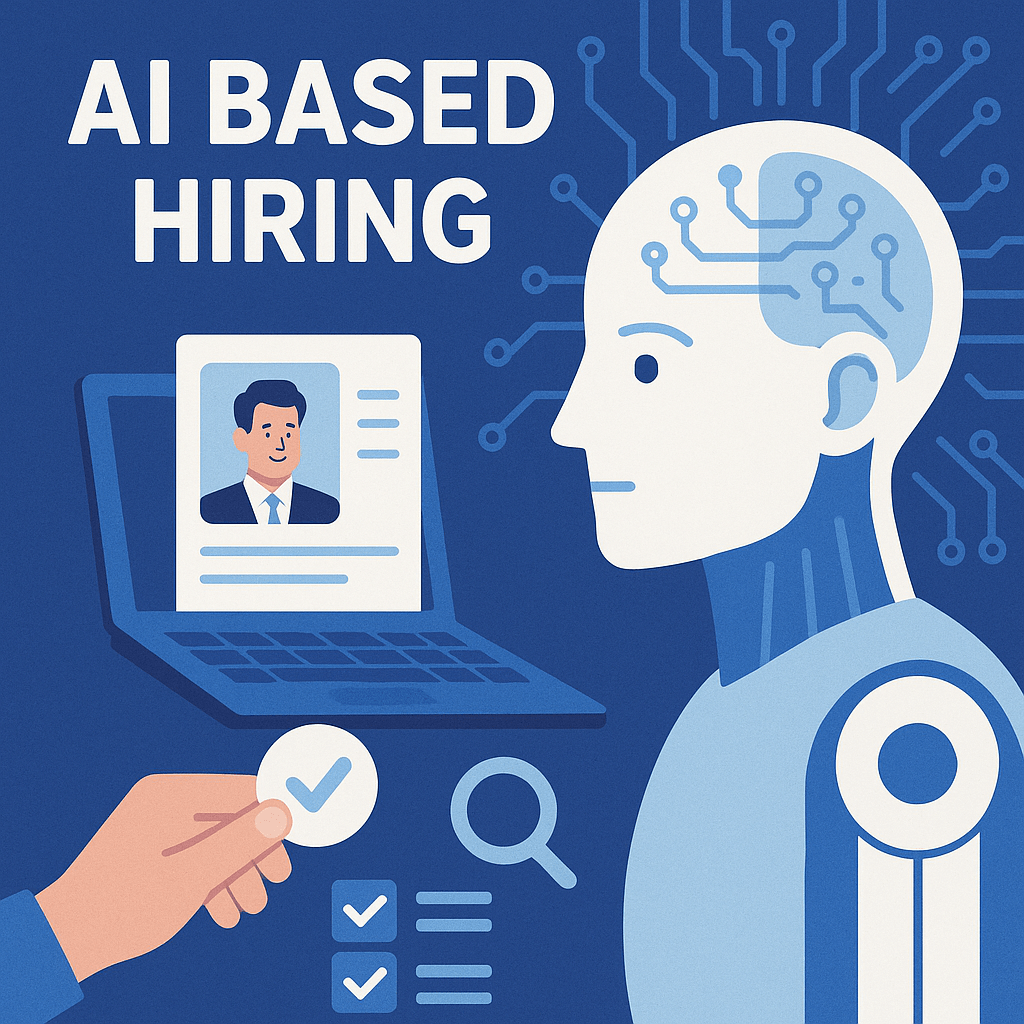Employment of landscapes undergoes a dramatic change. In today’s fast-paced digital economy, companies are approaching advanced technology to increase recruitment processes. The most transformative innovations are AI-based employment, a method that uses artificial intelligence to screen candidates, predict performance, and streamline decision-making.
For organizations facing terrible competition for top talent, it is no longer an alternative to take advantage of AI – this is necessary.
Page Contents
The Shift Toward AI in Recruitment
Traditionally, recruitment involves tiring, manual functions: Reading resumes piles, planning of interviews and evaluating candidates in thematically. This process not only took time, but also subject to unconscious prejudices and human errors.
Now, with the emergence of AI, the staff teams can treat thousands of applications in a fraction of time, so that recruiters can focus on meaningful interactions and strategic plans.
According to a 2023 study of LinkedIn, more than 76% of recruits accept as true with that AI will considerably affect their workflakes. In addition, 99% of Fortune 500 agencies now use automation or AI in expertise collections, from chatbots to predictive analysis.
Key Advantages of AI in Hiring
1. Speed and Scalability
AI systems can parse resumes and cover letters at lightning speed. A large AI hiring platform reported that companies using their software reduced by 60%from time to 60%. This means that less time spent more time filtering disqualified candidates and focusing on highly affected talent.
2. Smarter Candidate Matching
AI tools utilize data analysis to evaluate a candidate skills, experience and even communication style. Instead of fully relying on the keyword, AI looks at the reference, the recruiters help find a better fit based on the role-specific success predictors.
A 2024 report from Gartner showed that companies using the AI-operated screening tool experienced 37% improvement in employee retention during the first year of employment.
3. Low Bias
When the idea is finished thinking, AI can reduce prejudice by focusing on the simplest focus on objective qualifications. AI can forget about irrelevant factors like call, age, gender, or ethnicity, making sure that hiring is primarily based on ability, no longer assumptions. This has been mainly crucial for companies committed to improving range and inclusion.
According to McKinsey, groups in the pinnacle quartile for gender diversity on govt teams are 25% more likely to have above-average profitability, making equitable hiring now not just an ethical imperative however an economic one.
4. Data-Driven Decisions
Every hiring choice can now be subsidized by using data. AI-powered analytics can pick out tendencies, measure candidate engagement, or even predict which applicants are maximum likely to simply accept an offer or leave the employer early.
Real-World Success Stories
Leading companies throughout sectors are already reaping the rewards of AI in hiring.For example:
- Unilever applied an AI-based hiring tool that monitors applicants via online video games and video interviews. This stored over 100,000 hours of interview time at the same time as increasing candidate variety.
- Hilton Hotels decreased its common time to hire from 43 days to 5 days after implementing AI screening software.
- L’Oréal stepped forward as the candidate revealed in significant, reporting a 90% satisfaction rate amongst candidates who engaged with their AI recruitment platform.
These success testimonies display how scalable, fair, and efficient AI may be when thoughtfully integrated.
Ethical and Operational Challenges
Despite its potential, AI hiring isn’t without controversy. Critics point out that if AI systems are trained on biased data sets, they may replicate or even amplify historical hiring biases. In 2018, Amazon famously scrapped its AI recruiting tool after discovering it favored male candidates for technical roles—simply because it was trained on resumes submitted over a decade, which skewed male.
For AI to truly support equitable hiring, it must be:
- Regularly audited for fairness and transparency
- Trained on diverse, balanced data sets
- Used to complement, not replace, human judgment
Transparency is also key. Candidates should know when and how AI is being used in their application process, and there must be clear paths for appeals or human review.
The Future of AI in Hiring
AI in recruitment is unexpectedly evolving. By 2026, it’s expected that over 70% of organisations will adopt AI-based structures for full-cycle hiring—from sourcing to onboarding. Voice analysis, behavioral technology, and natural language processing will most effectively enhance these structures’ skills.
At the same time, policies are emerging. The EU AI Act and similar regulations within the U.S. are beginning to area limits on how AI may be used in employment contexts. These rules aim to ensure transparency, equity, and duty values that forward-thinking agencies must already include.
How Your Business Can Prepare
If you’re considering adopting AI in your recruitment strategy, start by evaluating where your current hiring process struggles. Common indicators include:
- Long time-to-fill for roles
- High turnover in the first year
- Low diversity in applicant pipelines
- Poor candidate feedback scores
Next, choose an AI tool aligned with your goals. Look for platforms that provide clear metrics, ethical use guarantees, and strong support for integration with your existing HR software.
Final Thoughts
AI is no longer the future of hiring—it’s the present. Organizations that embrace this technology stand to gain a competitive edge, not just in terms of speed and efficiency, but in hiring quality and diversity as well. While there are still hurdles to navigate, the benefits of using AI to streamline recruitment far outweigh the risks when handled responsibly.
For companies ready to evolve, AI-based hiring offers a smarter, more strategic path to building high-performance teams.

